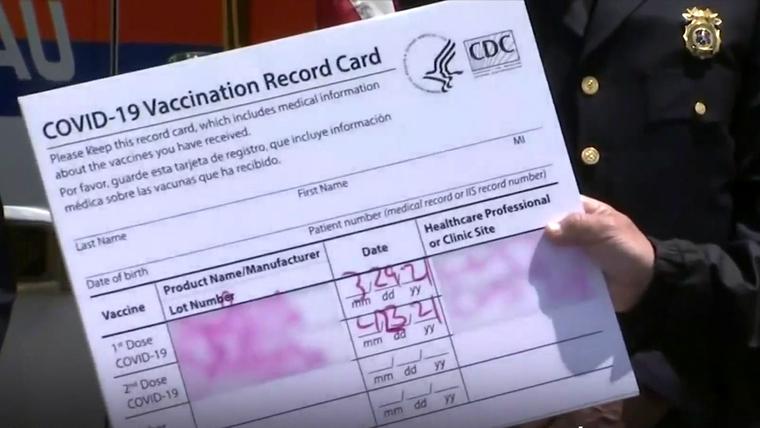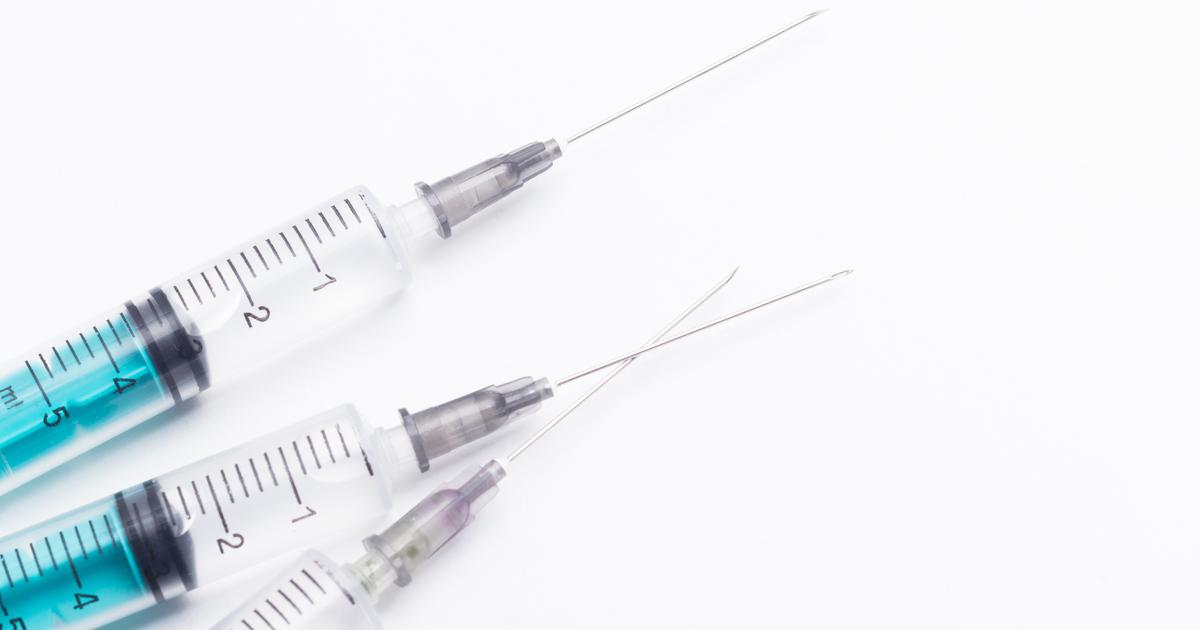By Robert Finberg - The Conversation
If someone has a headache or feels unwell after getting the COVID-19 vaccine, it's common to hear them say something like, "Oh, this means my immune system is working really hard."
On the other hand, when people don't notice anything, they sometimes worry that the vaccine isn't doing its job.
This perception does not fit the reality of how vaccines work.
Is there a relationship between what can be noticed after a vaccine and what happens at the cellular level within the body?
This perception does not fit the reality of how vaccines work.
It is normal for each person to have a stronger or weaker immune response to a vaccine, but the side effects after vaccination will not tell you what your case is.
What does the body do when it is vaccinated?
The immune system responds to the foreign molecules that make up any vaccine through two different systems.
The initial response is due to what is called the innate immune response.
This system is activated as soon as your cells notice that you have been exposed to any foreign material, from a splinter to a virus.
Your goal is to eliminate the invader.
White blood cells called neutrophils and macrophages travel to the intruder and work to destroy it.
This first line of defense is relatively short, lasting hours or days.
"The fear must be not to get vaccinated": We interview Xavier Becerra, US Secretary of Health.
May 15, 202102: 45
The second line of defense takes days or weeks to put in place.
It is the long-lasting adaptive immune response.
It is based on the T and B lymphocytes of the immune system
that learn to recognize certain invaders, such as a coronavirus protein.
If the invader is found again, months or even years later, it is these immune cells that will recognize the old enemy and begin to generate the antibodies that will eliminate it.
For SARS-CoV-2 vaccines, it takes approximately two weeks to develop the adaptive response that provides lasting protection against the virus.
[Find out here where, when and how you can get vaccinated where you live]
When you inject the vaccine, what you notice on the first day or two is part of your innate immune response: your body's inflammatory reaction, aimed at quickly removing foreign molecules that have passed through the perimeter of your body.
It varies from person to person, but the drama of the initial response need not be related to the long-term response.
In the case of the two mRNA COVID-19 vaccines such as those from Pfizer or Moderna, more than 90% of the immunized people developed the protective adaptive immune response, while less than 50% developed any side effects, and the majority they were mild.
You may never know how intensely your body's adaptive immune response is building.
The bottom line is that the efficacy of the vaccine in the body cannot be measured based on what can be detected from outside.
Every person has a more or less strong immune response to a vaccine
, but the side effects after vaccination will not tell you what your case is.
It is the second adaptive immune response that helps your body gain immunity to the vaccine, not the inflammatory response that triggers those first aches and pains.
What are side effects?
Side effects are normal responses to injecting a foreign substance.
They include things like fever, muscle pain, and injection site discomfort, and are mediated by the innate immune response.
The neutrophils or macrophages in your body sense the molecules in the vaccine and produce cytokines - molecular signals that cause fever, chills, fatigue, and muscle pain.
Doctors expect this cytokine reaction to occur every time a foreign substance is injected into the body.
CVS Pharmacy Employee Arrested Accused Of Forging COVID-19 Vaccination Cards
May 15, 202101: 32
In studies in which neither the recipients nor the researchers knew which individuals were receiving the mRNA vaccine or a placebo, about half of the people aged 16 to 55 who received the SARS-CoV-2 vaccine developed joint pain. head after the second dose. This reaction may be related to the vaccine - but a quarter of the people who only received a placebo also developed a headache. So in the case of very common symptoms, it can be quite difficult to attribute them to the vaccine with any certainty.
Researchers anticipate some reports of side effects.
Adverse events, on the other hand, are things that doctors don't expect to happen as a result of the vaccine.
They would include the failure of an organ or serious damage to any part of the body.
[How the new CDC guidelines affect grocery and grocery store workers]
The blood clots that led the United States and the European Union to temporarily suspend distribution of the Johnson & Johnson and AstraZeneca vaccines are a very rare event, apparently occurring with a frequency of one in a million.
What component of the vaccine causes the side effects?
The only "active ingredient" in the Pfizer and Moderna vaccines are the mRNA instructions that tell the recipient cells to build a viral protein.
But vaccines have other components that help mRNA travel within the body.
To wear a mask or not ?: there is confusion over the new CDC recommendation for vaccinated people
May 14, 202101: 49
In order for the mRNA from the vaccine to reach the vaccinated person's cells, where it can do its job, it must bypass the body's enzymes that would naturally destroy it.
The researchers protected the mRNA in the vaccine by wrapping it in a bubble of lipids that help prevent its destruction.
Other ingredients in vaccines - such as polyethylene glycol, which is part of this lipid envelope - could elicit allergic responses.
If I feel bad after the injection, does that mean I have strong immunity?
Scientists have not identified any relationship between the initial inflammatory reaction and the long-term response that leads to protection.
There is no scientific evidence that someone with more obvious side effects from the vaccine is later better protected against COVID-19.
And there is no reason that having an exaggerated innate response makes the adaptive response better.
The two licensed mRNA vaccines provided protective immunity to more than 90% of recipients, but fewer than 50% reported any reactions to the vaccine and far fewer had severe reactions.
Robert Finberg is
Professor of Medicine at the University of Massachusetts School of Medicine







